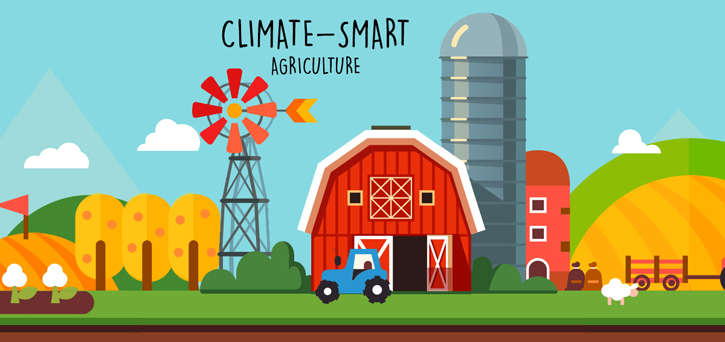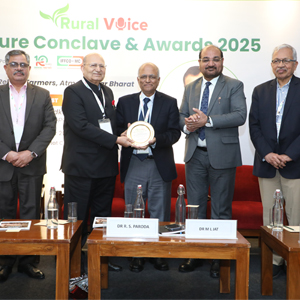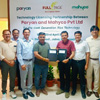
CLIMATE- SMART AGRICULTURE: THE NEED OF THE HOUR
Climate smart agriculture is defined as a holistic approach to crop cultivation, taking into account, new realities, arising amidst of drastically changing climate regimes. Climate change has become even more unpredictable, year after year. Thus, it is one of the biggest challenges faced by mankind, fuelled largely by uncontrolled human activities, like emission of vast amounts of green house gases, in the era of rapid industrialisation. Unpredictable climate change has drastic effects on agriculture. As both climate change and agriculture are inter-connected, therefore, agricultural practices need to be modified, in such a manner, so as to mitigate food and feed risk, for the entire human and animal population. According to Food and Agriculture organization of the United Nations (FAO), climate- smart agriculture is proposed, as a solution, to transform traditional agricultural systems to support food security under the new realities of climate change. Extensive research is needed to understand best suited approaches that must be undertaken to overcome uncertainties associated with climate change. This will invariably include modified agricultural practices, which can have a positive impact on the environment.
CGIAR is doing commendable work in this arena, including in many African countries. Through the CGIAR Research Program on Climate Change, several initiatives, like Agriculture and Food Security (CCAFS), climate smart villages are being established with the focus to empower farmers. Faster adoption of technology has enabled farmers to practice precise use of resources, and the best techniques available in hand, to reduce the effect on climate change.
Adapting resilience to the changing climatic conditions is another aspect of climate smart agriculture. Through seed innovation and plant science, Mahyco develops robust varieties of crops in rice, wheat, maize, and vegetable crops to name a few, that are tolerant to climate change viz. resilient to drought, heat, salt, pests and diseases. Cultivation of such crops ensures that farmers get high yield and predictable economic returns at all time!
Going ahead, use of clean technologies, which tolerate changing climatic regimes should be promoted. This would involve the collective effort of all the stakeholders in the agricultural system, including policymakers, academicians, mass media, industries lobby, NGOs and farmers. There is an urgent need to create awareness for the need of climate- smart agriculture and thereby, empower farmers, to implement resilient agriculture. The online database created by FAO, which archives the effects of climate change and the possible solutions to guide right mix of practices to mitigate impact on agriculture. Technological advancement and relevant initiatives set promising example of the models, that need to be adopted, to ensure that sustainable goals, chiefly, food security is met through climate – smart agricultural practices.
Dr Anjanabha Bhattacharya, Scientist, Mahyco











